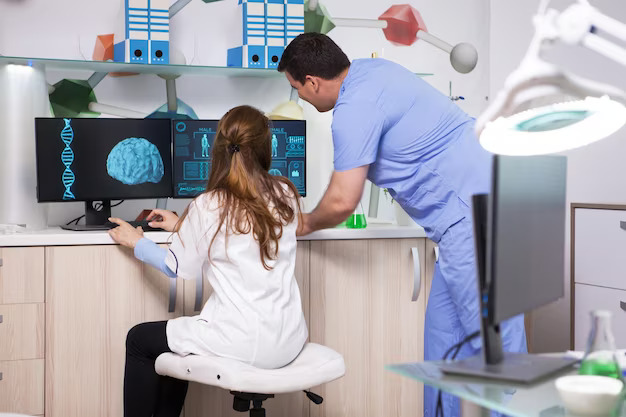Multiple Sclerosis (MS) Management
Multiple sclerosis (MS) is a potentially incapacitating condition affecting the brain and spinal cord (central nervous system). In MS, the immune system targets the protective sheath (myelin) surrounding nerve fibers, leading to communication issues between the brain and the rest of the body.
Over time, this can result in permanent damage or degeneration of the nerves. The signs and symptoms of MS exhibit considerable variation, contingent on the extent of nerve damage and the specific nerves involved. Individuals with severe MS may face the loss of independent or total walking ability, whereas others may undergo extended periods of remission without the emergence of new symptoms.

Symptoms
Symptoms of multiple sclerosis (MS) can vary significantly among individuals and evolve throughout the course of the disease, depending on the location of affected nerve fibers. Common manifestations include:
- Numbness or weakness in one or more limbs, typically occurring on one side of the body at a time.
- Tingling sensations.
- Electric-shock sensations, particularly during certain neck movements, such as bending the neck forward (Lhermitte sign).
- Lack of coordination.
- Unsteady gait or an inability to walk.
- Partial or complete loss of vision, usually affecting one eye at a time, often accompanied by pain during eye movement.
- Prolonged double vision.
When to access Medical Care
Consult with a healthcare professional if you encounter any of the aforementioned symptoms without a clear explanation.
Determinants of risk
Multiple sclerosis (MS) signs and symptoms can vary widely among individuals and evolve throughout the disease, depending on the affected nerve fibers’ location. Common indicators include:
Age: While MS can manifest at any age, it typically begins between 20 and 40 years old. However, individuals both younger and older may also be affected.
Sex: Women are more than 2 to 3 times as likely as men to have relapsing-remitting MS.
Family History: Individuals with a family history of MS, particularly if a parent or sibling has had the disease, are at a higher risk of developing MS.
Certain Infections: Various viruses, including Epstein-Barr (associated with infectious mononucleosis), have been linked to an increased risk of MS.
Recovery process
Recovery duration varies, contingent on factors like patient characteristics, chosen procedure, and the extent of severity.
Why entrust your care to us?
At Steps 2 Cure, our foundation of trust is built upon several key pillars that ensure your confidence in our services and expertise. Our team comprises highly qualified professionals with extensive experience in their respective fields. Their knowledge and skills enable us to offer you the best possible care and solutions for your medical needs. We understand that each individual is unique, and so are their healthcare requirements.
That’s why we prioritize tailoring our treatments and approaches to your specific circumstances, ensuring that you receive care that is truly designed for you. You are at the heart of everything we do. Your comfort, concerns, and aspirations guide our efforts. Our compassionate approach ensures that you feel valued and supported throughout your healthcare experience.
To commence the treatment procedure, you can start by forwarding your questions via WhatsApp at (+91 9999652964) or by sending an email to care@steps2cure.com. Our team will ensure a swift response to your queries.
Still have a Query?
Your health and peace of mind matter to us, and we’re dedicated to addressing any inquiries you may have with care and expertise. Feel free to reach out.
Subscribe To Our Newsletter
Stay in touch with us to get latest news and special offers.

